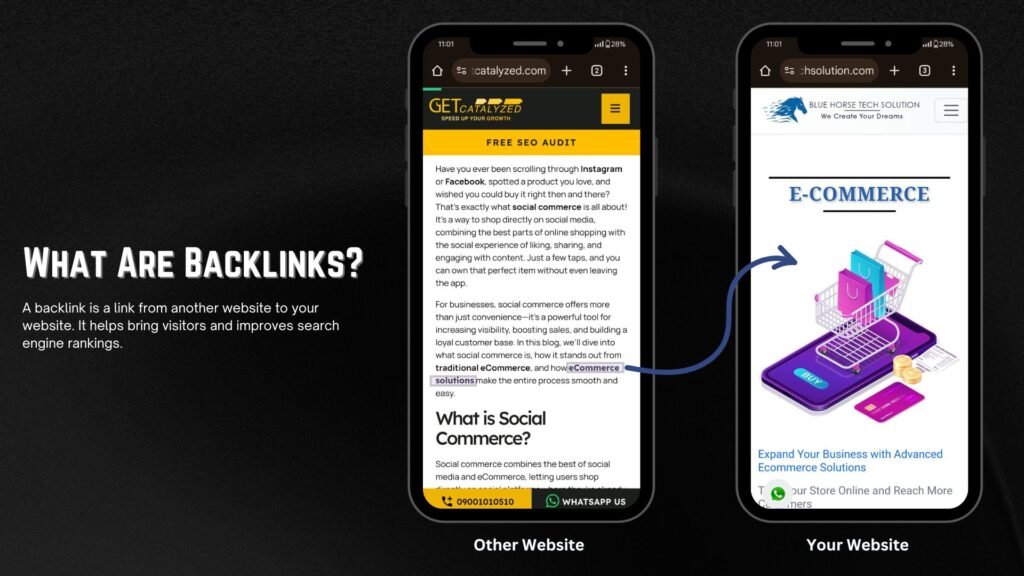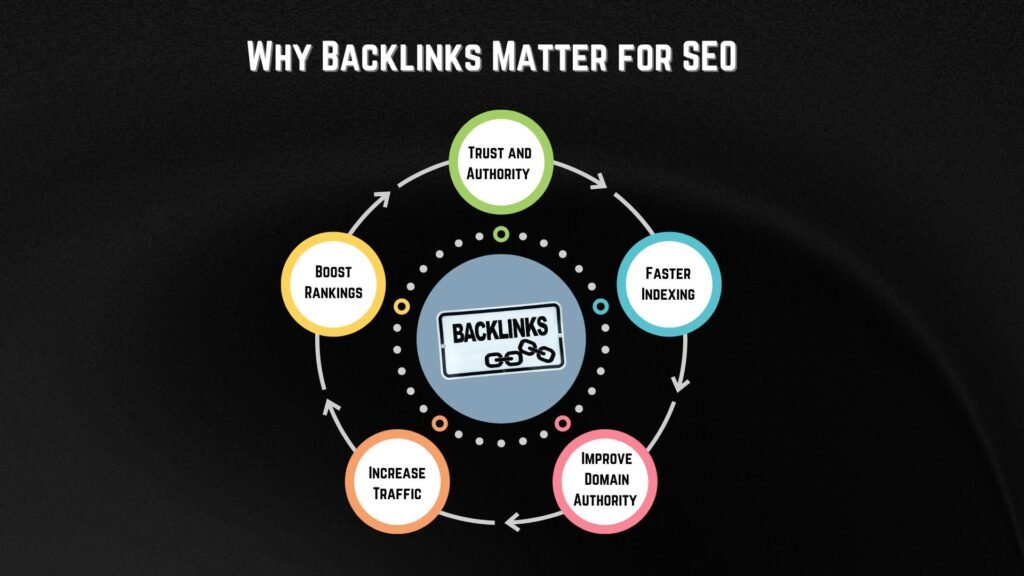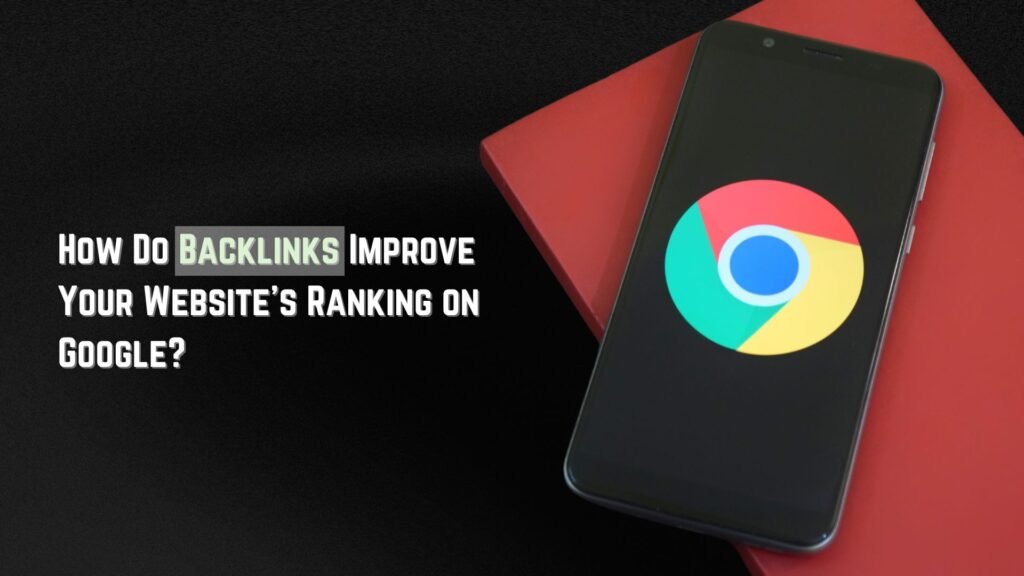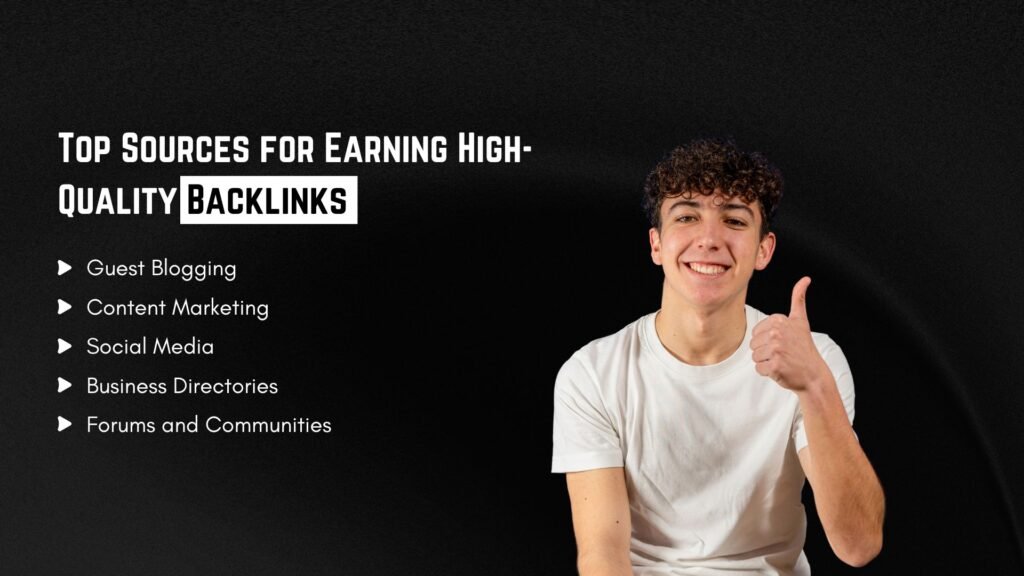More than half of all businesses today rely on digital marketing services, and following this trend, more than 71% of businesses have a website. This number has been steadily increasing as more businesses recognize the importance of having an online presence. But do we think having a website is enough to expand your business online? No! Right? We are in the digital age, with 5.35 billion people now depending on or using the internet, and this number is only growing with time. If you own a website and want your business to succeed online, then SEO is essential. SEO helps your website rank higher on search engines, making it easier for potential customers to find you. One of the key elements of SEO is backlinks.
Backlinks are like recommendations, and search engines use these recommendations to determine how valuable and relevant your website is. Backlinks can come from various sources, such as other websites, social media, directories, forums, and blogs.
In this blog, we will learn about backlinks, why they are important, and how they can help improve your website’s ranking and bring more traffic.
What Are Backlinks?

Backlinks are links from one website to another. When a website links to your site, it’s essentially telling search engines that your content is valuable. Backlinks are also known as inbound links or incoming links, and they play a crucial role in Google’s ranking algorithm. In simple terms, backlinks act as votes of confidence for your website.
Why Backlinks Matter for SEO?

Backlinks are one of the top ranking factors that Google uses to determine the importance and relevance of your website. Websites with a strong backlink profile tend to rank higher in search engine results pages (SERPs). Here are some key reasons:
Boost Rankings: The more high-quality backlinks you have, the better your chances of ranking higher on Google.
Increase Traffic: Backlinks can drive referral traffic to your website, bringing in visitors who click on the links from other sites.
Build Trust and Authority: Backlinks from reputable sites signal to search engines that your site is trustworthy and authoritative.
Faster Indexing: Search engines find new content by following backlinks, helping your site get indexed more quickly.
Improve Domain Authority (DA): More backlinks from high-authority sites can improve your site’s overall domain authority, which is an important factor for SEO.
How Do Backlinks Improve Your Website’s Ranking on Google?

Backlinks are links from other websites that point to your website. When Google looks at these backlinks, it checks how many links you have and how good they are. Having quality backlinks can really help your website rank higher on Google. Let’s break down how backlinks affect your rankings:
Relevance: When a website that is related to your industry links to you, it tells Google that your content is important. For example, if you run a travel blog and a popular travel magazine links to you, it shows that your blog has valuable information for readers. This is a good sign for search engines.
Authority: Backlinks from websites with high Domain Authority (DA) or Page Authority (PA) are very powerful. These websites have been around longer and have strong reputations. For instance, if a well-known news site or a popular blog links to you, it can significantly boost your ranking. According to recent data, backlinks from sites with a DA of 40 or higher can improve your chances of ranking on the first page of Google.
Diversity: Having a variety of backlinks is important. If your backlinks come from different types of websites, like blogs, news sites, forums, and social media, it shows Google that your site is recognized by many different sources. For example, if a tech blog, a local news website, and a social media influencer all link to you, Google sees that as a positive sign.
Anchor Text: The words used in the hyperlink, known as anchor text, matter too. If the anchor text includes keywords that relate to your content, it helps Google understand what your page is about. For example, if someone links to your site using the phrase “best pizza in town,” it signals to Google that your website might be about pizza.
The Difference Between Quality and Low-Quality Backlinks

Not all backlinks are created equal. Quality backlinks can boost your rankings, but low-quality or spammy links can harm your site. Here’s how to differentiate between the two:
Quality Backlinks: These come from reputable, high-authority sites, are relevant to your content, and use natural anchor text. Examples include links from well-known blogs, news websites, or industry leaders.
Low-Quality Backlinks: These may come from spammy websites, link farms, or sites unrelated to your niche. Google’s Penguin algorithm penalizes sites with unnatural or spammy backlink profiles, so it’s important to avoid these.
Top Sources for Earning High-Quality Backlinks

Research from Ahrefs shows that about 90% of pages ranking in the top 10 search results have backlinks. This data highlights how important creating quality backlinks is for improving your website’s visibility on Google. Here are some of the best sources to earn high-quality backlinks in 2025:
Guest Blogging: Writing guest posts for well-known websites is a great way to earn backlinks. Many companies look for fresh content. By sharing your knowledge on their blogs, you not only get a backlink but also reach a new audience. Websites with high authority can provide valuable backlinks that boost your SEO.
Content Marketing: Creating useful and shareable content is very important. This includes infographics, blogs, and whitepapers. Infographics are especially popular because they present information in an easy-to-understand way. When people find your content helpful, they are more likely to link to it from their own sites.
Social Media: Promoting your content on social media platforms like Facebook, Twitter, and Instagram can lead to more backlinks. When you share your content, it reaches a wider audience. If people like what they see, they may share it or link to it on their websites. Using social media effectively can really increase your backlinks.
Business Directories: Submitting your website to trustworthy business directories is another good way to earn backlinks. Websites like Yelp, Yellow Pages, and Google My Business help you get local backlinks. Having your business listed in these directories can improve your local SEO and attract more customers.
Forums and Communities: Engaging in forums like Quora or Reddit is a smart way to earn backlinks. By answering questions and sharing helpful insights, you can drive traffic to your site. Being active in relevant communities not only builds your reputation but also helps you get backlinks when people find your answers useful.
How to Build Quality Backlinks in 2025

Building quality backlinks is very important for improving your website’s ranking on Google. Here are some easy ways to get started:
Create High-Quality Content: Focus on making great content. This means writing articles, guides, or blog posts that are useful and interesting. Use real data, case studies, and eye-catching visuals, like charts or infographics. For example, if you’re in the health niche, share facts from the World Health Organization (WHO) about current health trends. When your content is valuable, other websites are more likely to link to it.
Outreach to Relevant Sites: Reach out to bloggers and website owners who write about topics similar to yours. You can send them a friendly email introducing your content. If they find it useful, they might link to your page. In 2025, personalized outreach is key. Take a look at their site and mention why your content would be a good fit.
Utilize Social Media: Social media is a powerful tool for sharing your content. Platforms like Instagram, Twitter, and LinkedIn have millions of users. Share your posts and encourage others to share them too. This can help more people see your work and increase the chances of earning backlinks. For instance, if you post a helpful tip on LinkedIn, someone might link to it in their blog.
Participate in Online Communities: Joining online communities is another way to build backlinks. Websites like Quora and Reddit are great for this. Look for questions related to your content and provide helpful answers. When it fits, include a link to your article for more information. This not only helps others but also drives traffic back to your site.
Monitor Competitors: Keeping an eye on your competitors is also important. Use tools like Ahrefs or SEMrush to find out where they are getting their backlinks. You can see which websites link to them and try to earn links from those same sites. This strategy can help you catch up or even surpass your competitors in search rankings.
Benefits of Backlinks
Increased Visibility: Backlinks help your website show up higher on search engines like Google. When more people can find your site, you can reach more potential customers. In fact, sites with quality backlinks can see a significant increase in traffic—sometimes by up to 50% or more! This means more visitors who may be interested in what you offer.
Higher Authority: When your website gets backlinks from other trusted sites, it boosts your credibility. This means that users are more likely to trust your content. Search engines also notice this, and they rank your site higher. According to recent studies, websites with strong backlinks tend to rank in the top 10 search results, which is where most people click.
Better User Experience: Backlinks can guide users to other helpful resources. When users find additional information easily, they have a better experience on your site. This can keep them on your page longer and make them more likely to return. For example, if a visitor reads a blog post on your site and finds links to related topics, they are more likely to explore more. A good user experience can lead to higher engagement and better overall satisfaction.
Avoid These Common Backlink Building Mistakes

Buying Backlinks: Buying backlinks may seem like an easy way to boost your website’s ranking, but it can lead to serious problems. Google often penalizes sites that use paid links, which means your website could drop in rankings or even get removed from search results. Instead of buying backlinks, focus on earning them naturally through quality content and outreach. This way, you build a strong reputation over time.
Using Spammy Sites: Linking to or getting links from low-quality or spammy websites can hurt your SEO efforts. When you link to these sites, it can make your own site look untrustworthy in the eyes of Google. Always check the quality of the sites you are linking to and avoid those that seem spammy or irrelevant. Instead, aim to connect with reputable sites in your industry to build strong backlinks.
Ignoring Anchor Text: Anchor text is the clickable text in a hyperlink. It’s important to use relevant keywords in your anchor text to help Google understand what your content is about. If you ignore this, you might miss out on valuable traffic. For example, instead of using “click here,” use “best digital marketing tips.” This helps both users and search engines know what to expect when they click the link.
How to Monitor and Analyze Your Backlink Profile
Monitoring your backlinks is very important for your website’s success. Backlinks are links from other websites to yours. They can help improve your SEO (Search Engine Optimization) if they are good quality. However, if you have harmful or low-quality backlinks, they can hurt your SEO. So, it’s essential to keep an eye on them.
You can use several tools to help you check your backlink profile. One of the best tools is Google Search Console. It’s free and easy to use. With Google Search Console, you can see which websites link to yours. You can also find out if there are any issues with your backlinks.
Another great tool is Ahrefs. Ahrefs is known for its detailed analysis. You can see not only where your backlinks come from but also the quality of those links. Ahrefs shows you important data, like the number of backlinks, the strength of the linking sites, and how your competitors are doing.
SEMrush is also a useful tool. It provides insights into your backlink profile and helps you compare it with others in your industry. You can identify which backlinks are bringing you traffic and which ones might be harmful.
If you find any bad links, you can use the disavow tool in Google Search Console. This tool allows you to tell Google that you do not want certain links to count against your site. It’s important to be careful when using this tool, as you don’t want to disavow good links by mistake.

Conclusion
Building quality backlinks is a powerful way to improve your SEO and drive more traffic to your website in 2025. Focus on earning natural, relevant, and high-authority backlinks, and avoid shortcuts like buying links or relying on low-quality sources. With the right strategy, your website will rank higher in Google, attract more visitors, and help your business grow online.
Ready to take your website to the next level? Let Blue Horse Tech Solution help you develop a solid backlink strategy that enhances your online presence! Contact us today to learn more about our SEO services and start boosting your website’s visibility!
